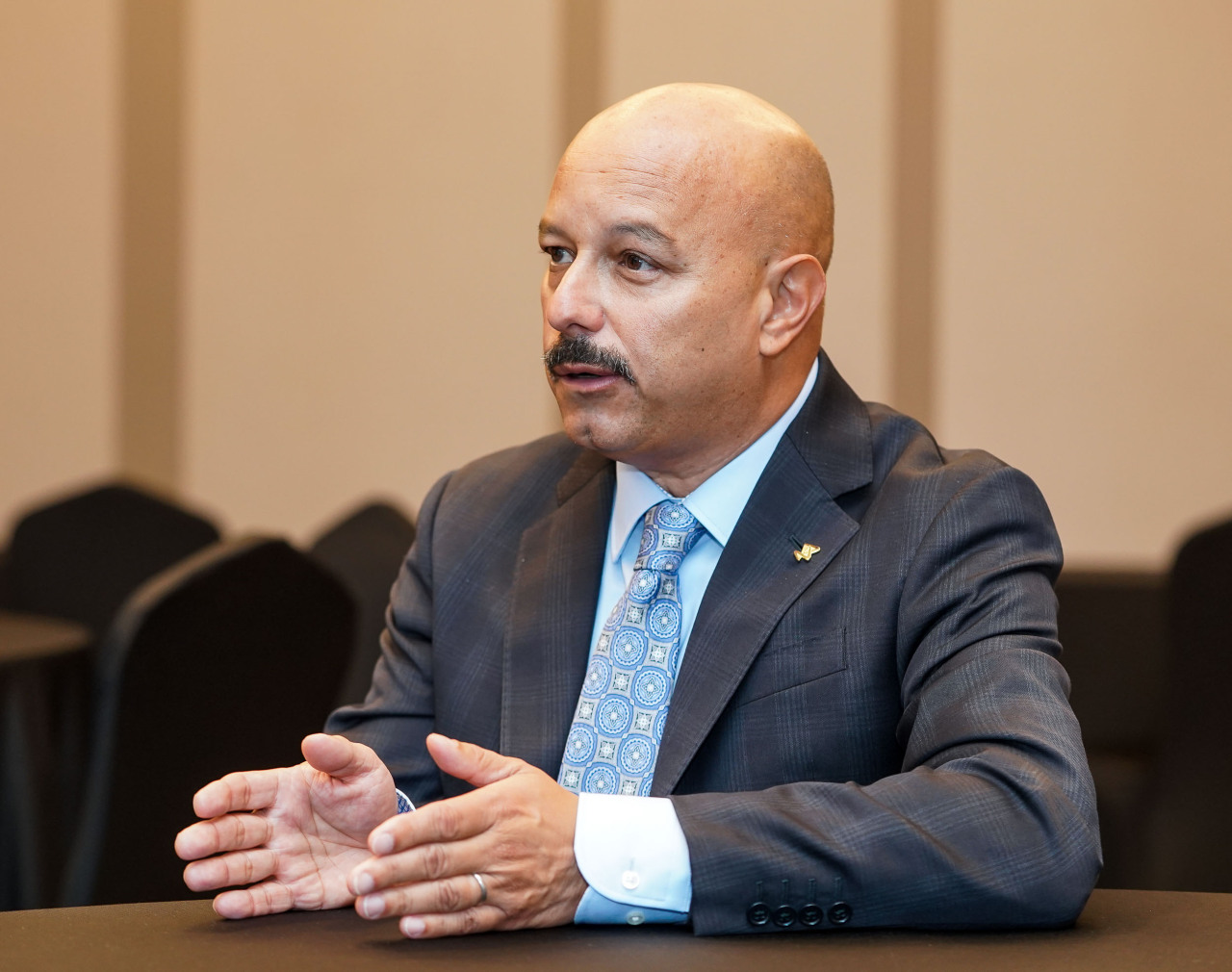 |
John L. Perez, senior vice president at AstraZeneca, speaks to The Korea Herald in an interview at Grand InterContinental Seoul Parnas on Sept. 5. (AstraZeneca Korea) |
It has been almost 1,000 days since the first case of COVID-19 was reported from Wuhan, China, at the end of December 2019. The unprecedented pandemic swept the world. Humanity fought back fiercely. The world now appears to have an upper hand over the novel coronavirus as borders are crossed and masks are taken off.
However, a global expert on immune therapies and vaccines says the COVID-19 pandemic is not done yet.
“Everyone wishes (the pandemic) would go away but it really hasn’t. I think governments and public health institutions recognize that. The pandemic isn’t over, really," said John L. Perez, senior vice president at AstraZeneca. "People are still getting sick. Until we can take care of that forever, there’s going to be work to do.”
The expert, who spoke to The Korea Herald at Grand InterContinental Seoul Parnas on Sept. 5, underlined the importance of continued efforts in innovating and developing next-generation vaccines and treatments to prepare for a potential fight against new virus variants. He warned that if the world does not adapt to the virus, the virus is going to win and it could be back to 2020 all over again.
AstraZeneca has played an important role in the world’s battle against COVID-19 as the global pharmaceutical company developed Vaxzevria, one of the earliest COVID-19 vaccines to be approved for emergency use. AstraZeneca also developed Evusheld, a long-acting medicine that protects immunocompromised people who do not respond to the vaccines as well as others.
“So globally, about 2 percent of the world is immunocompromised. These are the people who are still filling up our hospitals. They’re going to (intensive care units) and they’re dying. So we need to protect them, especially now, because COVID-19 is not over,” said Perez.
The South Korean government purchased 20,000 doses of Evusheld in June. The Ministry of Food and Drug Safety approved Evusheld for emergency use at the end of the same month. Health authorities began administering Evusheld on Aug. 8.
Perez said AstraZeneca was successful in coping with the pandemic because it cooperated with academic institutions such as the University of Oxford and other companies including Samsung Biologics and SK Bioscience.
“Samsung Biologics is a perfect example where strategically it really made sense to have a company in South Korea that manufactures Evusheld and other oncology products for distribution in Asia,” he said.
“There's no reason why we wouldn’t continue not just to do it with them, but with others. So one of the reasons I'm here is to start forging relationships with other local companies so that, as my unit, vaccines and immune therapies, grows, we grow all together.”
The AstraZeneca official did not disclose any names when asked about which companies or institutions he planned to meet with during his three-day stay in Korea. Perez on Monday delivered a presentation on learnings and innovations in continuing to address COVID-19 during the plenary session at the Global Bio Conference, an international annual event hosted by the Ministry of Food and Drug Safety.
Regarding the recent growth of the Korean bio industry, Perez said it was backed by continued innovation and a desire to participate on the international stage.
“I see local people wanting to develop products within the country and get them not just approved in Korea but get them approved globally and become a real global player. And from an AstraZeneca perspective, that's fantastic,” he said.
“We want to be involved in that and we want to encourage that because South Korea’s really important strategically for us, as is the entire Asian region, and we see great partnership in South Korea. I look forward to continuing to forge that relationship.”
By Kan Hyeong-woo (
hwkan@heraldcorp.com)





![[Exclusive] Hyundai Mobis eyes closer ties with BYD](http://res.heraldm.com/phpwas/restmb_idxmake.php?idx=644&simg=/content/image/2024/11/25/20241125050044_0.jpg)
![[Herald Review] 'Gangnam B-Side' combines social realism with masterful suspense, performance](http://res.heraldm.com/phpwas/restmb_idxmake.php?idx=644&simg=/content/image/2024/11/25/20241125050072_0.jpg)

